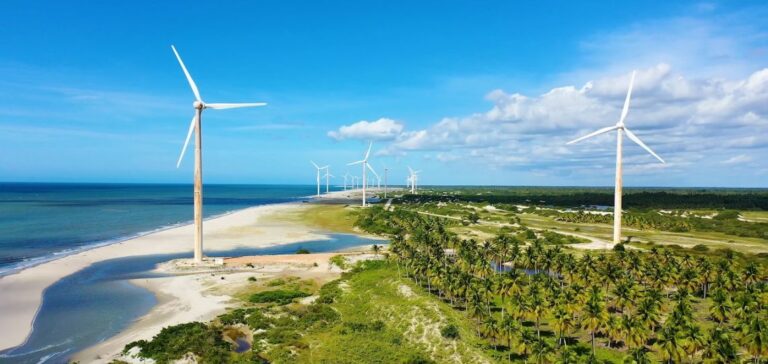Brazil’s renewable energy sector is going through a period of turbulence, with potentially serious implications for current and future projects.
Limitations, or “curtailments”, imposed by the Operador Nacional do Sistema Elétrico (ONS) are having a direct impact on wind and solar power generation.
These restrictions, motivated by grid security constraints, reduce producers’ ability to inject their entire output into the power system, which has a significant impact on their revenues.
These curtailments are mainly concentrated in the north-east of Brazil, a strategic region for the development of green energies.
Due to insufficient transmission infrastructure, the energy produced cannot be efficiently distributed to the consumption centers in the southeast, where demand is highest.
This creates a bottleneck situation that threatens the viability of current and future projects.
Major losses in Brazil’s renewable energy sector
The wind power sector, represented by the Associação Brasileira de Energia Eólica (ABEEólica), estimates that it has suffered losses of around 700 million reais over the last twelve months.
For its part, the Associação Brasileira de Energia Solar Fotovoltaica (Absolar) reports that solar producers recorded losses of 50 million reais over the last four months.
These losses, directly linked to curtailments, underline the fragility of the current situation. Among the companies hardest hit, Engie Brasil Energia and Equatorial Energia have seen their operations significantly curtailed.
For example, the Serra do Mel II B complex in Rio Grande do Norte has seen 58% of its production rejected since the start of 2024.
This situation increases the risks for investors, who may be reluctant to commit new capital in such an uncertain environment.
Legal remedies envisaged by affected companies
In response to these difficulties, some companies are considering legal action to recover the losses incurred.
However, these procedures could be lengthy and costly, and do not guarantee a rapid resolution.
Meanwhile, projects to extend the transmission network, although underway, will not be operational for several years, leaving producers in a precarious situation.
The main challenge for Brazil lies in modernizing its power grid, to better integrate the growing production of renewable energies.
Without a rapid improvement in transmission infrastructure, the country risks seeing the development of this crucial sector slow down.
Decisions taken in the coming months will be decisive for the future of renewable energy investment in Brazil.






















